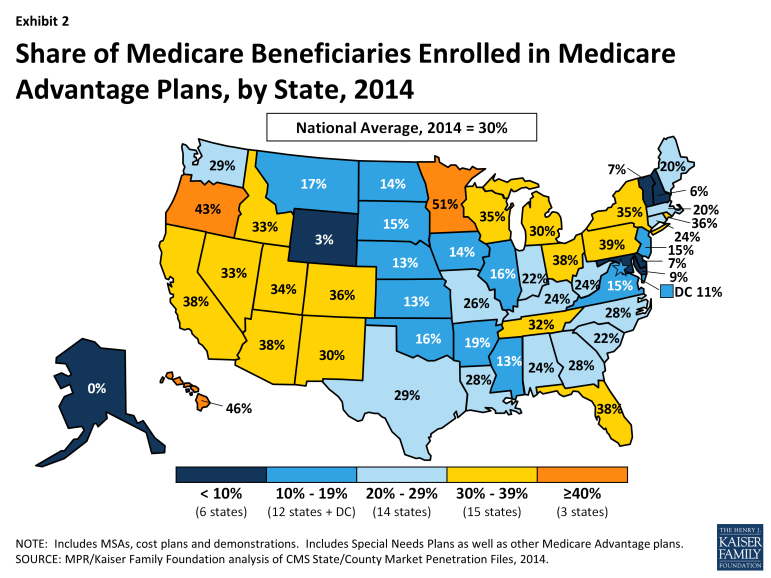Next year, seniors with private Medicare Advantage insurance policies whose doctors leave their plan may be able to leave, too, under a new Medicare rule.
The Centers for Medicare & Medicaid Services (CMS), which oversee Medicare Advantage programs, will create a special three-month enrollment period in any state where insurers make network changes “considered significant based on the affect or potential to affect, current plan enrollees,” according to an update to Medicare’s Managed Care Manual.
The special enrollment period – if granted by CMS – would allow Medicare Advantage members to switch out of their plans and join traditional Medicare or another Medicare Advantage plan whose provider network includes their doctors.
The mid-year special enrollment period wasn’t an option in 2013 when more than 32,000 UnitedHealthcare Medicare Advantage members in Connecticut were affected by the company’s decision to drop thousands of doctors from its network of providers. The Fairfield County Medical Association sued the company to stop the terminations but was ultimately unsuccessful. At that time, Attorney General George Jepsen and other elected officials asked CMS for an extended enrollment period to allow seniors to change plans because their plans dropped their doctors.
Medicare Advantage plans are an alternative to the government-run Medicare program and restrict members to receive health care from a network of participating providers. They can sign up every fall for the following year and can leave the plan during the year only under rare exceptions.Until now,losing their doctor was not among them.
U.S. Sen. Richard Blumenthal criticized the new rule because it’s not clear what “significant” network changes would trigger a special enrollment period. Instead, he spearheaded a letter sent last Friday to Medicare chief Marilyn Tavenner, asking her to prohibit mid-year provider network changes. The letter was also signed by U.S. Sens. Sherrod Brown of Ohio and Rand Paul of Kentucky, along with U.S. Reps. Rosa DeLauro, Joe Courtney, Jim Himes, Elizabeth Esty and 13 other members of Congress.
“This blatant bait and switch should not be allowed,” they wrote.
 If CMS continues to permit provider network changes during the year, the lawmakers say the criteria for a special enrollment period should be defined, beneficiaries should receive 60 days’ advance notice instead of 30, provider network directories should be accurate and standards for network adequacy should be improved.
If CMS continues to permit provider network changes during the year, the lawmakers say the criteria for a special enrollment period should be defined, beneficiaries should receive 60 days’ advance notice instead of 30, provider network directories should be accurate and standards for network adequacy should be improved.
Blumenthal has also introduced the Medicare Advantage Participant Bill of Rights Act, a bill that would require many of the consumer protections that the lawmakers have asked Tavenner to put in place.
Banning network changes would hamper provider contract negotiations which occur throughout the year, said Clare Krusing, a spokeswoman for the leading health insurance trade group, America’s Health Insurance Plans.
“If, all of a sudden, regulators decided to limit the type of networks and arrangements that plans can offer that will limit beneficiaries’ choices,” she said.
CMS will decide on a “case by case” basis when provider network changes merit a special enrollment period, said spokesman Raymond Thorn. It will depend on the number of beneficiaries affected and whether they received adequate notice, the size of the plan’s service area and when during the year the provider terminations occur. He declined to provide details on the minimum number of beneficiaries, providers or service area size that would be necessary.
Once Medicare decides that plan members will be allowed to leave their plan, the agency will require the plan to notify them about their new options. However, beneficiaries cannot request a special enrollment period due to network changes, Thorn said. That’s different from other special enrollment periods in which beneficiaries can request if they move into an area where their plan is not available, become eligible for Medicaid or move into a nursing home.
Mark Thompson, executive director of the Fairfield County Medical Association, which sponsored town hall meetings to hear from affected seniors, said, “We had hundreds of patients last year who were beside themselves because they had to leave one or more physicians when United said their doctors were no longer in the plan.”
Seniors were left with few options.
“There wasn’t anything they could do about it,” Thompson said. “They couldn’t go to another plan and they couldn’t go back to traditional Medicare.”
Thompson said the new special enrollment option shows that Medicare officials “were watching, they were concerned and it appears they are making changes.”
Like Blumenthal and Thompson, David Lipshutz, a senior attorney at the Center for Medicare Advocacy, is also skeptical about how the special enrollment period will work.
“It’s not guaranteed,” he said, and depends on reports from insurers to Medicare about the number of doctors and other providers leaving their networks.
Connecticut residents in Medicare Advantage plans who lose their doctors can call Choices, the state’s senior health insurance information program, at 1-800-994-9422 or visit the Center’s website at www.medicareadvocacy.org for advice.
“This is something we will be tracking,” Lipshutz said.
Contact Susan Jaffe at Jaffe.KHN@gmail.com